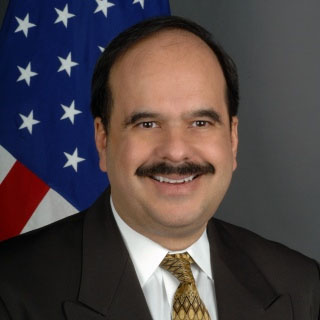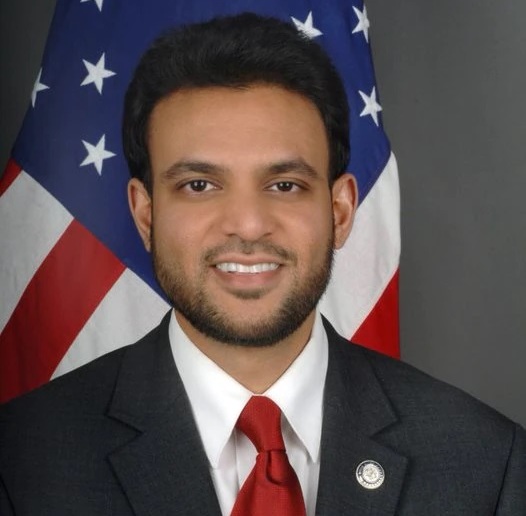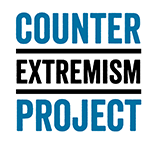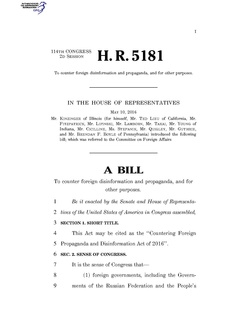Related Research Articles

The United States Department of State (DOS), commonly referred to as the State Department, is a federal executive department responsible for carrying out U.S. foreign policy and international relations. Established in 1789 as the nation's first executive department, its duties include advising the President of the United States, administering the nation's diplomatic missions, negotiating treaties and agreements with foreign entities, and representing the U.S. at the United Nations.
Public diplomacy in Israel, also known as Hasbara, refers to public-relations efforts to disseminate positive information abroad about the State of Israel and its actions.

The Bureau of Counterterrorism and Countering Violent Extremism (CT) is a bureau of the United States Department of State. It coordinates all U.S. Government efforts to improve counter-terrorism cooperation with foreign governments and participates in the development, coordination, and implementation of American counterterrorism policy.

Richard Allen Stengel is an American editor, author, and former government official. He was Time magazine's 16th managing editor from 2006 to 2013. He was also chief executive of the National Constitution Center from 2004 to 2006, and served as President Obama's Under Secretary of State for Public Diplomacy and Public Affairs from 2014 to 2016. Stengel has written a number of books, including a collaboration with Nelson Mandela on Mandela's autobiography, Long Walk to Freedom. Stengel is an on-air analyst at MSNBC, a strategic advisor at Snap Inc., and a Distinguished Fellow at the Atlantic Council. His 2019 book, Information Wars: How we Lost the Battle Against Disinformation and What to Do About It, recounts his time in the State Department countering Russian disinformation and ISIS propaganda.

Alberto Miguel Fernandez is a Cuban-American former diplomat. He was the head of the Middle East Broadcasting Networks (MBN), which includes Alhurra.

The Islamic State of Iraq and the Levant, also known as the Islamic State of Iraq and Syria, officially known as the Islamic State (IS) and also known by its Arabic-language acronym Daesh, is a militant group and a former unrecognised proto-state that follows a fundamentalist, Salafi jihadist doctrine of Sunni Islam. ISIL gained global prominence in early 2014 when it drove Iraqi government forces out of key cities in its Western Iraq offensive, followed by its capture of Mosul and the Sinjar massacre.
The web brigades, also known as Russia's troll army, Russian bots, Putinbots, Kremlinbots, troll factory, Lakhta trolls or troll farms, are state-sponsored anonymous Internet political commentators and trolls linked to the Russian government. Participants report that they are organized into teams and groups of commentators that participate in Russian and international political blogs and Internet forums using sockpuppets, social bots and large-scale orchestrated trolling and disinformation campaigns to promote pro-Putin and pro-Russian propaganda. It has also been found that articles on Russian Wikipedia concerning the MH17 crash and the 2014 Ukraine conflict were targeted by Russian internet propaganda outlets.

United Arab Emirates–United States relations are bilateral relations between the United Arab Emirates and the United States of America. The United Arab Emirates has been described as the United State's best counter-terrorism ally in the Gulf by Richard A. Clarke, the US national security advisor and counter-terrorism expert. In terms of defense, the United Arab Emirates Armed Forces has been nicknamed "Little Sparta" by United States Armed Forces Generals and US secretary of defense James Mattis for its active role against extremists in the Middle East. The United Arab Emirates also hosts the only United States border preclearance in the Middle East.

Michael D. Lumpkin is a former American Naval Officer and businessman who served as the Special Envoy and Coordinator of the Global Engagement Center at the U.S. Department of State until January 2017. From 2013 until 2016, he was the Assistant Secretary of Defense for Special Operations and Low-Intensity Conflict. During that time, he also served as the acting Under Secretary of Defense for Policy, the third-highest civilian job at the United States Department of Defense. In December 2017, he became the Vice President of Human Performance and Behavioral Health at Leidos' health division.

Rashad Hussain is an American attorney, diplomat, and professor, who served as Associate White House Counsel, Ambassador to Muslim countries as U.S. Special Envoy of President Barack Obama to the Organisation of Islamic Cooperation (OIC), and the U.S. Special Envoy for Strategic Counterterrorism Communications. Hussain has also served on the National Security Council and in the Department of Justice as a trial attorney and a criminal and national security prosecutor. In his role as Envoy to the OIC, the second largest intergovernmental body after the UN, Hussain traveled to numerous countries and international gatherings, served as a foreign policy advisor, and met with foreign leaders and Muslim communities around the world. His position, "a kind of ambassador at large to Muslim countries was created by President George W. Bush," and the Washington Post described Hussain as member of the President Obama's "spiritual cabinet."

Abu Bakr al-Baghdadi, born Ibrahim Awad Ibrahim Ali al-Badri al-Samarrai, was the Iraqi-born leader of the Islamic State of Iraq and the Levant (ISIL). The group has been designated as a terrorist organisation by the United Nations, as well as by the European Union and many individual states, while Baghdadi was considered a Specially Designated Global Terrorist by the United States. In June 2014, he was chosen caliph of ISIL by the Shura Council, who represented those members of the Islamic State qualified to elect a caliph.
Due to the convenience, affordability, and broad reach of social media platforms such as YouTube, Facebook and Twitter, terrorist groups and individuals have increasingly used social media to further their goals, recruit members, and spread their message. Attempts have been made by various governments and agencies to thwart the use of social media by terrorist organizations.
Terror groups take to social media because it’s cheap, accessible, and facilitates quick access to a lot of people. Social media allow them to engage with their networks. In the past it wasn’t so easy for these groups to engage with the people they wanted to whereas social media allows terrorists to release their messages right to their intended audience and interact with them in real time. "Spend some time following the account, and you realize that you’re dealing with a real human being with real ideas- albeit boastful, hypocritical, violent ideas". Al- Qaeda has been noted as being as being one of the terror groups that uses social media the most extensively. "While almost all terrorist groups have websites, al qaeda is the first to fully exploit the internet. This reflects al Qaeda’s unique characteristics."
State-sponsored Internet propaganda is a government's use of paid Internet propagandists with the intention of swaying public opinion, undermining dissident communities, or changing the perception of what is the dominant view. It is considered a form of astroturfing.

The propaganda of the Russian Federation is propaganda that promotes views, perceptions or agendas of the government of Russia. The media include state-run outlets and online technologies, and may involve using "Soviet-style 'active measures' as an element of modern Russian 'political warfare'".

The Counter Extremism Project (CEP) is a nonprofit non-governmental organization that combats extremist groups "by pressuring financial support networks, countering the narrative of extremists and their online recruitment, and advocating for strong laws, policies and regulations."

The Internet Research Agency, also known as Glavset and known in Russian Internet slang as the Trolls from Olgino, is a Russian company engaged in online influence operations on behalf of Russian business and political interests. It is linked to Russian oligarch Yevgeny Prigozhin and based in Saint Petersburg.
The Arab country of Qatar, bordered by Saudi Arabia and the Persian Gulf, has been accused of allowing terror financiers to operate within its borders. The country has been called "the Club Med for Terrorists" by Ron Prosor, an Israeli diplomat and "most two-faced nation in the world, backing the U.S.-led coalition against the militants of the Islamic State while providing a permissive environment", in the words of one top American official, "for terrorist financiers to operate with impunity". Accusations come from a wide variety of sources including intelligence reports, government officials, and journalists.

Countering Foreign Propaganda and Disinformation Act is a bipartisan bill that was introduced by the United States Congress on 10 May 2016. The bill was initially called the Countering Information Warfare Act.

Clinton Watts is a senior fellow at the Center for Cyber and Homeland Security at George Washington University and a Foreign Policy Research Institute fellow. He previously was an infantry officer in the United States Army, and was the Executive Officer of the Combating Terrorism Center at United States Military Academy at West Point (CTC). He became a Special Agent for the Federal Bureau of Investigation where he served on the Joint Terrorism Task Force (JTTF). He has consulted for the FBI Counterterrorism Division (CTD) and FBI National Security Branch (NSB).
Social media use in politics refers to the use of online social media platforms in political processes and activities. Social media platforms encompass websites such as Facebook, YouTube, WeChat, Instagram, Quora, QQ, QZone, Weibo, Twitter, Tumblr, Reddit, Baidu Tieba, LinkedIn, LINE, Snapchat, Pinterest, Viber, and VK.
References
- ↑ Toosi, Nahal (8 February 2017). "Tillerson spurns $80 million to counter ISIS, Russian propaganda". Politico. Retrieved 2 August 2017.
- ↑ U.S. Intensifies Effort to Blunt ISIS’ Message. The New York Times. 2015-02-16
- ↑ Why It's So Hard to Stop ISIS Propaganda. The Atlantic. 2015-03-02.
- ↑ Meet The State Department Team Trying To Troll ISIS Into Oblivion Archived 2016-05-29 at the Wayback Machine . ThinkProgress. 2014-09-18.